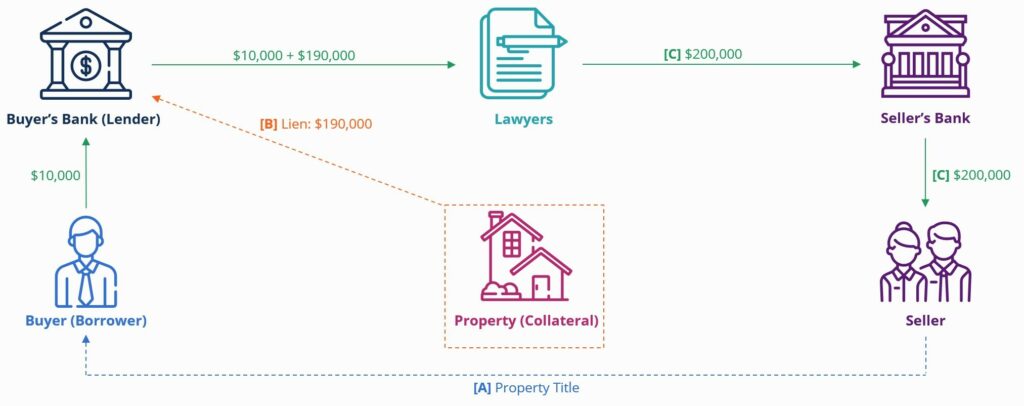Mortgage financial services play a pivotal role in the real estate industry, enabling individuals and businesses to acquire properties by providing loans secured against the property's value. Understanding the intricacies of mortgage loans, the importance of these services, and how to navigate this financial landscape is crucial for potential borrowers and investors alike.
Understanding Mortgage Loans
Mortgage loans come in various types, including fixed-rate mortgages, adjustable-rate mortgages (ARMs), government-insured loans, and more. Each type has its own set of terms and conditions, impacting the borrower's payments and interest rates. Knowing how these loans function is essential for making informed decisions.
Importance of Mortgage Financial Services
The significance of mortgage financial services transcends mere property acquisition. These services facilitate homeownership, property investment, and business expansions, contributing significantly to personal wealth and economic growth.
Choosing the Right Mortgage Financial Services Provider
Selecting the right mortgage financial services provider involves considering factors such as interest rates, loan terms, customer service, reputation, and flexibility. Researching and comparing offerings from different providers is vital to secure the best-suited option.
Benefits of Using Mortgage Financial Services
Utilizing mortgage financial services offers numerous advantages, including access to capital, tax benefits, wealth accumulation through property appreciation, and the opportunity for investment diversification.
Common Challenges in Mortgage Financial Services
Challenges like stringent eligibility criteria, high-interest rates, complex documentation, and economic fluctuations can hinder the mortgage process. Addressing these challenges involves tailored solutions and risk management strategies.
Trends in the Mortgage Financial Services Industry
The mortgage industry constantly evolves, driven by technological advancements, changing customer preferences, and economic shifts. Staying updated with industry trends is crucial for informed decision-making.
Future Predictions for Mortgage Financial Services
Foreseeing the future landscape of mortgage services involves anticipating changes in regulations, market demands, technological innovations, and customer expectations.
Case Studies Highlighting Successful Mortgage Solutions
Examining successful cases can provide insights into effective mortgage strategies, innovative approaches, and the impact of financial services on individuals and businesses.
Regulatory Aspects in Mortgage Financial Services
Regulations govern the mortgage industry to ensure transparency, consumer protection, and financial stability. Understanding these regulations is fundamental for compliance and ethical business practices.
Integrating Technology in Mortgage Services
Technology integration, like AI-powered analytics and digital platforms, enhances efficiency, simplifies processes, and improves customer experiences in mortgage services.
Steps to Improve Financial Security with Mortgages
Strategies for improving financial security through mortgages involve prudent financial planning, risk management, and aligning mortgage choices with long-term financial goals.
Exploring Mortgage Refinancing Options
Refinancing offers opportunities to lower interest rates, adjust loan terms, or tap into equity. Understanding the process and its implications is vital for borrowers seeking financial flexibility.
Tips for Managing Mortgage Payments Effectively
Managing mortgage payments entails budgeting, exploring payment options, considering early payments, and seeking financial advice when facing difficulties.
Conclusion
Mortgage financial services form the backbone of real estate transactions, enabling individuals and businesses to achieve their property ownership dreams. Understanding the nuances, challenges, and opportunities within this realm is pivotal for making informed decisions and securing a prosperous financial future.
What is the difference between a fixed-rate mortgage and an adjustable-rate mortgage?
A fixed-rate mortgage maintains the same interest rate for the entire loan period, offering stability in payments. Conversely, an adjustable-rate mortgage (ARM) has a fluctuating interest rate, typically lower initially, but it can change periodically, impacting monthly payments.
How do I choose the best mortgage financial services provider?
Choosing the right provider involves considering multiple factors. Evaluate interest rates, loan terms, reputation, customer service, and any additional fees or flexibility in offerings. Research and compare different providers to find the best fit for your needs.
Can I secure a mortgage with a low credit score?
While a low credit score might pose challenges in securing a mortgage, it's not impossible. Some lenders specialize in loans for individuals with lower credit scores or offer programs to assist in improving creditworthiness. However, terms and interest rates may vary.
What are the advantages of mortgage refinancing?
Mortgage refinancing can bring various benefits, including the opportunity to obtain a lower interest rate, reduce monthly payments, adjust the loan term, access equity for other purposes, or consolidate debts. It's essential to weigh the pros and cons based on individual financial goals.
How can I avoid foreclosure on my property?
To avoid foreclosure, maintain timely mortgage payments, communicate with the lender if facing financial difficulties, explore loan modification options, seek housing counseling, and consider refinancing or selling the property to settle the mortgage debt.
